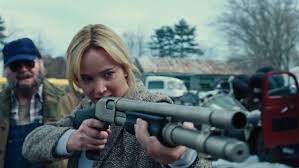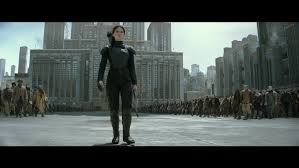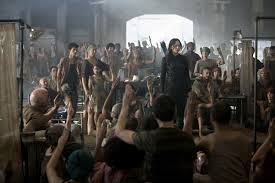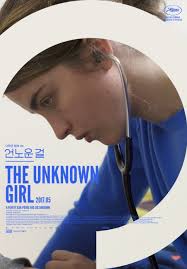ROGUE ONE, PASSENGERS ZERO: Movie Reviews of Rogue One: A Star Wars Story and Passengers by Howard Casner
Posted: December 27, 2016 | Author: Donald | Filed under: Uncategorized | Tags: Alan Tudyk, Ben Mendelsohn, Chris Platt, Chris Seitz, Diegan Luna, Felicity Jones, Gareth Edwards, Jennifer Lawrence, Jon Spaihts, Lawrence Fishburne, Mads Mikkelsen, Michael Sheen, Morten Tyldum, Passengers, Peter Cushing, Rogue One: A Star Wars Story, Tony Gilroy | 1,093 Comments »For questions: hcasner@aol.com
First, a word from our sponsors: I am now offering a new service: so much emphasis has been given lately to the importance of the opening of your screenplay, I now offer coverage for the first twenty pages at the cost of $20.00. For those who don’t want to have full coverage on their screenplay at this time, but want to know how well their script is working with the opening pages, this is perfect for you. I’ll help you not lose the reader on page one.
Ever wonder what a reader for a contest or agency thinks when he reads your screenplay? Check out my new e-book published on Amazon: Rantings and Ravings of a Screenplay Reader, including my series of essays, What I Learned Reading for Contests This Year, and my film reviews of 2013. Only $2.99. http://ow.ly/xN31r
and check out my Script Consultation Services: http://ow.ly/HPxKE
Warning: SPOILERS
 In film, Sci-Fi has often been divided into two categories: adult science fiction, stories that capture the mind and are more philosophical and questioning in nature; and pop culture Sci-Fi, stories that are more escapist and less challenging where the grey cells are concerned.
In film, Sci-Fi has often been divided into two categories: adult science fiction, stories that capture the mind and are more philosophical and questioning in nature; and pop culture Sci-Fi, stories that are more escapist and less challenging where the grey cells are concerned.
Perhaps no better year can define this dichotomy than 1977 when the original Star Wars was released the same year as Close Encounters of the Third Kind.
Critics often claim, or have a prejudice, that adult sci-fi is inherently superior or preferably to pop culture sci-fi. And I do have to admit, if truth be forceably told, I tend to prefer the former to the latter. But there is never a guarantee that one is going to be better than the other. In fact, in the end, the one that is better is simply the one that is better, and the reason why it is better is because, when all is said and done, it’s the, well… better one. Read the rest of this entry »
HEAD CASES: Movie Reviews of Joy and Concussion by Howard Casner
Posted: January 10, 2016 | Author: Donald | Filed under: Uncategorized | Tags: Albert Brooks, Alec Baldwin, Annie Mumolo, Bradley Cooper, Concussion, David Morse, David O. Russell, Diane Ladd, Edgar Ramirez, Isabella Rossellini, Jeanne Marie Laskas, Jennifer Lawrence, Joy, Ken Howard, Melissa Rivers, Peter Landesman, Robert de Niro, Susan Lucci, Virginia Madsen, Will Smith | 183 Comments »First, a word from our sponsors: I am now offering a new service: so much emphasis has been given lately to the importance of the opening of your screenplay, I now offer coverage for the first twenty pages at the cost of $20.00. For those who don’t want to have full coverage on their screenplay at this time, but want to know how well their script is working with the opening pages, this is perfect for you. I’ll help you not lose the reader on page one.
Ever wonder what a reader for a contest or agency thinks when he reads your screenplay? Check out my new e-book published on Amazon: Rantings and Ravings of a Screenplay Reader, including my series of essays, What I Learned Reading for Contests This Year, and my film reviews of 2013. Only $2.99. http://ow.ly/xN31r
and check out my Script Consultation Services: http://ow.ly/HPxKE
Warning: SPOILERS
 The movie Joy, the new sorta, kinda, maybe bio-pic of Joy Magano, inventor of the Miracle Mop, starts out with text on the screen: “Inspired by the true stories of daring women. One in particular”.
The movie Joy, the new sorta, kinda, maybe bio-pic of Joy Magano, inventor of the Miracle Mop, starts out with text on the screen: “Inspired by the true stories of daring women. One in particular”.
I don’t know. Somehow on seeing those words up there in front of me, there was something so…condescending and patronizing about it all. It’s as if the filmmakers David O. Russell (who wrote the screenplay and directed) and Annie Mumolo (who worked on Bridesmaids and gets co-story credit here) were doing women a favor by making the movie at all and that somehow women should be thankful that someone actually created a film that instructs them how they should be leading their lives, since, being women, apparently, they don’t really know how to be daring and independent themselves.
I’m sure I’m overreacting and I’m sure few others felt the same way, but there was just something about it that left a bad taste in my mouth.
Once this intro was over, we then spend the first third of the movie with Joy being victimized by her family (both extended and not) as it falls to her to take care of everyone else’s problems while she puts hers on hold.
This section didn’t play that well with me, I’m afraid. It’s hard to watch a character allow her or himself to be treated like a door mat, letting everyone walk all over then. I think the intent is for those in the audience to say, “Oh, the poor woman”, when in reality, we’re sort of thinking, “Hey, no one’s forcing you to be the cure all for other people’s over-exaggerated slings and arrows”. Read the rest of this entry »
NO MORE FUN AND HUNGER GAMES: The Hunger Games: Mockingjay – Part 2
Posted: December 7, 2015 | Author: Donald | Filed under: Uncategorized | Tags: Danny Strong, Donald Sutherland, Francis Lawrence, Jennifer Lawrence, Julianne Moore, Mockingjay, Peter Craig, Philip Seymour Hoffman, Suzanne Collins, The Hunger Games | 2 Comments »First, a word from our sponsors: I am now offering a new service: so much emphasis has been given lately to the importance of the opening of your screenplay, I now offer coverage for the first twenty pages at the cost of $20.00. For those who don’t want to have full coverage on their screenplay at this time, but want to know how well their script is working with the opening pages, this is perfect for you. I’ll help you not lose the reader on page one.
Ever wonder what a reader for a contest or agency thinks when he reads your screenplay? Check out my new e-book published on Amazon: Rantings and Ravings of a Screenplay Reader, including my series of essays, What I Learned Reading for Contests This Year, and my film reviews of 2013. Only $2.99. http://ow.ly/xN31r
and check out my Script Consultation Services: http://ow.ly/HPxKE
Warning: SPOILERS
 At the end of The Hunger Games: Mockingjay – Part 1, I was left with one burning question: was Alma Coin, leader of the revolution, trying to bring freedom to the land, or was she only seeking power?
At the end of The Hunger Games: Mockingjay – Part 1, I was left with one burning question: was Alma Coin, leader of the revolution, trying to bring freedom to the land, or was she only seeking power?
Well, I have now seen The Hunger Games: Mockingjay – Part 2 and I have my answer.
And no, I’m not going to tell you because it leads to one of the most satisfying climactic scenes in movies for a while.
Of course, I should start off by saying that there is no way I will admit that The Hunger Games is great filmmaking. It certainly has a myriad of faults.
At the same time, I have found this franchise to be more intellectually intriguing, even fascinating, than others like it. There has always been something about the stories that stayed with me, something buried (a bit too much, I believe, at times) at the core of it. For me, The Hunger Games has always been a complex study of how a revolution begins, builds and bursts forth upon the land combined with the crowd pleasing wrappings of a commercial aesthetic.
It’s certainly no Lord of the Rings or Game of Thrones. Yet, I find it more rewarding than Harry Potter if for no other reason than half the time I never quite new where the story was going when it came to Hogwarts and environs (especially in the last entry which, in spite of being split into two films, I’m not convinced it ultimately made a lot of sense). Read the rest of this entry »
NO MORE FUN AND HUNGER GAMES or THE REVOLUTION WILL BE TELEVISED: Movie review of The Hunger Games: Mockingjay-Part I by Howard Casner
Posted: November 28, 2014 | Author: Donald | Filed under: Uncategorized | Tags: Danny Strong, Donald Sutherland, Elizabeth Banks, Francis Lawrence, Jeffrey Wright, Jennifer Lawrence, Josh Hutcherson, Julianne Moore, Liam Helmsworth, Peter Craig, Philip Seymour Hoffman, Stanley Tucci, Suzanne Collins, The Hunger Games: Mockingjay-Part I, Woody Harrelson | 8 Comments »First, a word from our sponsors. Ever wonder what a reader for a contest or agency thinks when he reads your screenplay? Check out my new e-book published on Amazon: Rantings and Ravings of a Screenplay Reader, including my series of essays, What I Learned Reading for Contests This Year, and my film reviews of 2013. Only $2.99. http://ow.ly/xN31r
Warning: SPOILERS
 Okay.
Okay.
How to start.
Well, there’s really no point in putting it off.
At the risk of losing what little reputation I have (if I even have one); at the risk of inviting ridicule, derision, mockery and scorn from those who read my reviews who don’t already hold me in ridicule, derision, mockery and scorn; and at the risk of being reviled by serious filmgoers far and wide…
The Hunger Games: Mockingjay-Part I is not nearly as bad as the critics claim it is and is by far the best entry in the franchise to date, far better than the first two films. Read the rest of this entry »
OF GODS AND MONSTERS: Moview Reviews of Godzilla and X-Men: Days of Future Past by Howard Casner
Posted: May 29, 2014 | Author: Donald | Filed under: Uncategorized | Tags: Aaron Taylor-Johnson, Alexander Desplat, Bryan Cranston, Bryan Singer, Dave Callaham, David Strathairn, Elizabeth Olson, Evan Peters, Gareth Edwards, Godzilla, Hugh jackman, Ian McKellen, Jane Goldman, Jennifer Lawrence, Juliette Binoche, Ken Watanabe, Matthew Vaughn, Max Borenstein, Michael Fassbender, Nicholas Hoult, Patrick Stewart, Peter Dinklage, Peter McAvoy, Sally Hawkins, Simon Kinberg, X-Men: Days of Future Past | 1,646 Comments » All the while, while watching Godzilla, the mega monster movie epic written by Max Borenstein from a story by Dave Callaham and directed by Gareth Edwards, all I could think is “where is Mystery Science Theater 3000 when you need them?”
All the while, while watching Godzilla, the mega monster movie epic written by Max Borenstein from a story by Dave Callaham and directed by Gareth Edwards, all I could think is “where is Mystery Science Theater 3000 when you need them?”
(I remember this one moment, see, and this female MOTU, okay, she like passes over the central character, Ford Brody, and you can like see its testicular like sac carrying its eggs and everything, and, and I so wanted Crow, Tom Servo or Gypsy to call out, “Please don’t teabag me, please don’t teabag me”). Read the rest of this entry »
Moview Reviews of AMERICAN HUSTLE and THE PAST by Howard Casner
Posted: December 23, 2013 | Author: Donald | Filed under: Uncategorized | Tags: Ali Mosaffa, American Hustle, Amy Adams, Asghar Farhadi, Bernice Bejo, Bradley Cooper, Christian Bale, David O. Russell, Eric Warren Singer, Jennifer Lawrence, Jeremy Renner, Louis C.K., Massoumeh Lahidji, Michael Pena, Michael Wilkinson, Tahar Rahim, The Past | 16,110 Comments »I’m not sure what the biggest crime in the new, based kinda, sorta, but who knows how much on a true story movie American Hustle is: the ABSCAM scandal at the center of the plot or those awful, awful fashions we use to wear at the time (some people may think that Michael Wilkinson’s designs are exaggerated for comic affect, but I tell you, they seem painfully close to the real thing to me).
I have to be honest, I did have some trouble with the film at first and for me the issue was Christian Bale in the lead as Irving Rosenfield, a con-man with a fake comb over (got symbolism?). I have always had issues with Bale, and it’s really not his fault. But I always felt he was trying way too hard to be Daniel Day-Lewis and he couldn’t quite carry it off. Where Day-Lewis seems to disappear into his roles, Bale always seems to be saying, “look at me pretending to be someone not remotely like myself”. And it’s always been a stickler to me when it came to his films.
I also don’t think it helped that the movie started with a rather loooooong introduction via voice over that just never seemed to stop.
But as the story gained traction and the supporting cast made their presences known, I forgot all about Bale’s calling attention to his talent as much as I forgot about Rosenfield’s comb over, which I think says a lot about both, actually.
And such a supporting cast: Amy Adams as his girlfriend and partner in crime who revels in showing off her side boob as much as her rather convincing, fake English accent (well, it’s better than Irving’s hair); Bradley Cooper as an over eager government agent who, somehow, miracles of miracles, is the only one who looks good in the period clothes and hairstyles (and he’s a much better dancer here than in Silver Linings Playbook); Jennifer Lawrence, riotously hysterical as Irving’s bi-polar wife; Jeremy Renner as a corrupt, but well-meaning mayor with a pompadour that looks like it’s about to take over the world; and in smaller roles, Louis C.K. as Richie’s long-suffering boss and Michael Pena as a fake sheik.
If nothing else, American Hustle is one of the most deliriously entertaining movies of the year. The screenplay by Eric Warren Singer and director David O. Russell has a fun, frantic 1930’s farcical feel to it. It seems to revel in the amorality of it all; in the ridiculousness of the situations; and, perhaps most pleasurable of all, in the incredibly neurotic relationships of the characters until the whole thing feels like a Warner Brother’s pre-code movie starring James Cagney in the con-man lead; Carole Lombard as his partner in crime; Jean Harlow as his wife; Clark Gable as the government agent; and Warner Baxter in the cameo as the corrupt mayor. Throw in a few character actors like Edward Everett Horton as the agent’s boss and Mischa Auer as the fake Sheik, and your back in the days of “more stars than there are in heaven”.
American Hustle also has some of the strongest and most interesting female characters in awhile. In this, the movie also harkens back to the 1930’s in it’s portrayal of women as alpha females who attract men because they are alpha females (rather than today when alpha females are often ridiculed and put down by screenwriters) and in its portrayal of men who are as willing to make as big of emotional fools of themselves over women as the women are over the men. And if anything, the women are far more in control of their emotions and destinies than any of the alpha males here.
It’s an attitude I feel is often missing from today’s rom coms (because no matter what else it is, American Hustle at the core is really a love story between two con artists). Of course, Singer and Russell still had to go into the past to pull it off, but at least they didn’t have to go eighty years to do it.
And the film feels like a step forward for Russell whose last couple off films (Silver Linings Playbook and The Fighter), though entertaining, felt a big tame and familiar, even formulaic. Perhaps there’s something about the story itself and the screenplay that took over. Whereas the earlier films felt like standard tropes and familiar arcs directed with an anarchic, chaotic style, American Hustle feels like a story that is all anarchy and chaos directed in, well, an anarchic, chaotic style. It refuses to let itself be put in a box and Russell didn’t force it, but let it be what it needed to be.
The Past, the new movie by writers Massoumeh Lahidji and Asghar Farhadi, who also directed (Farhadi gave us the searingly intense A Separation), feels like a table with a leg missing. It has three dynamic and powerful performances from Bernice (The Artist) Bejo, Tahar (A Prophet) Rahim and Ali (who has done a lot of other things, but I’m afraid I’m not familiar with him, but his hairpiece is far more convincing than Bale’s) Mosaffa in a sort of love triangle. And their intensity carries the film for quite awhile. But in the end, they are let down by a story that doesn’t quite hold up.
It took me awhile to figure out where things went wrong, but it happens about a third of the way through. In the first part, the story gains a lot of tension as Ahmad (Mosaffa) comes to France to finalize a divorce with his wife Marie (Bejo), only to find out that she’s not only living with a younger man, Samir (Rahim), she’s pregnant by him, and Ahmad’s oldest daughter is virulently against the relationship for reasons she won’t say.
And then the movie takes a completely different turn and begins to focus not on Ahmad, but on the daughter and why she’s against Marie and Samir’s upcoming nuptials, all having to do with Samir’s wife who is in a coma after trying to kill herself.
Now at first glance, this may sound like an interesting turn of the screw. But the problem is that this part of the story has nothing to do with Ahmad. By the time the movie is over, you even wonder why he’s in the story at all. In fact, almost as suddenly as he arrives, he disappears from the story for a good while as the other characters grapple with secrets being revealed.
There’s only one possible dramatic justification for Ahmad’s inclusion in the story and that is to get his daughter to confess a secret. But that’s not really enough of a justification for him to be a part of it all, and so the structure seems wobbly and the forward momentum slows down as you’re no longer sure where the story is going.
Farhadi’s previous film, A Separation, had a similar structure. It starts out as a family having issues and then changes course when they hire a caretaker, but she gets thrown out of the apartment by the husband, has a miscarriage and the story becomes about what really happened. But even there, the outcome of the story affected every single character. Everybody in the film was inextricably linked to that one incident. Here, Ahmad is more chopped liver and has nothing to really do.
The film is titled The Past and I’m not quite sure why. At one point, Samir talks about the need to forget what has come before in order to get on with the future. But that’s not really what the film as a whole has been about. And when Samir has his speech, it feels tacked on, as if the writers had suddenly remembered what they had named their story, and now suddenly felt a need to justify it.










 For questions: hcasner@aol.com
For questions: hcasner@aol.com There have been many examples of siblings sharing writing, directing and even producing credits from the Maysles to the Tavianis to the Wachowskis. Perhaps the most successful pairs artistically are the Coens and the Dardennes.
There have been many examples of siblings sharing writing, directing and even producing credits from the Maysles to the Tavianis to the Wachowskis. Perhaps the most successful pairs artistically are the Coens and the Dardennes.
